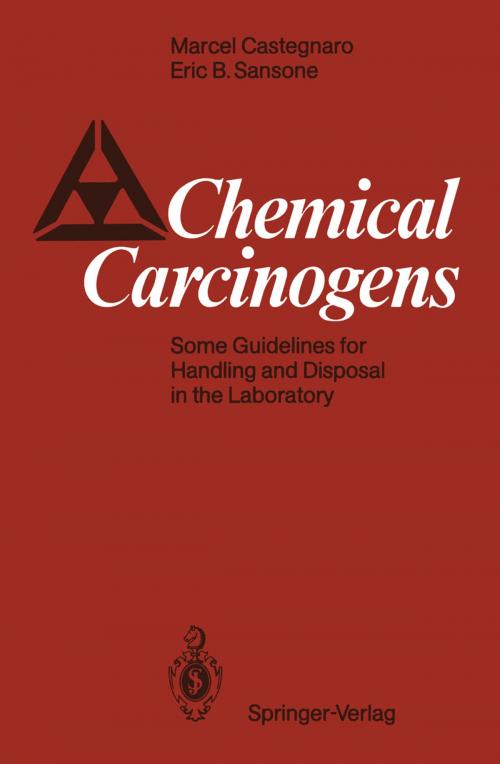Chemical Carcinogens
Some Guidelines for Handling and Disposal in the Laboratory
Nonfiction, Health & Well Being, Medical, Specialties, Pharmacy, Science & Nature, Science, Chemistry, General Chemistry| Author: | Eric B. Sansone, Marcel Castegnaro | ISBN: | 9783642713422 |
| Publisher: | Springer Berlin Heidelberg | Publication: | December 6, 2012 |
| Imprint: | Springer | Language: | English |
| Author: | Eric B. Sansone, Marcel Castegnaro |
| ISBN: | 9783642713422 |
| Publisher: | Springer Berlin Heidelberg |
| Publication: | December 6, 2012 |
| Imprint: | Springer |
| Language: | English |
"The chemical laboratory is actually not a dangerous place to work in, but it demands a reasonable prudence on the part of the experimenters and instructers, to keep it a safe place. Emphasis must be positive, indicating the proper, correct and safe procedure to be followed in all laboratory operations or when confron ted with an emergency situation. Too heavy stress upon the horrors associated with laboratory accidents or graphic descriptions of gory injuries or nasty fires should be avoided. Frightened, timid students are more likely to have accidents than the confident laboratory man who works with due regard to safety. " This statement, written by 1. R. Young (1) in 1971, in The Journal of Chemical Education, applies not only to students working in the chemical laboratory but can be extended to all scientists and technicians working with hazardous products, and in particular with chemical carcinogens. The hazards of handling toxic or dangerous chem icals have been well documented. Besides safety notices and articles in the scientific literature, a large number of books have been dedicated to this subject, among which can be cited Safety and Accident Prevention in Chemical Operations (2), Handbook of Laboratory Safety (3), Hazards in the Chemical Laboratory (4), 1 Handbook of Reactive Chemical Hazards (5), Safety in Working with Chemicals (6) and Prudent Practices for Handling Hazardous Chemicals in Laboratories (7).
"The chemical laboratory is actually not a dangerous place to work in, but it demands a reasonable prudence on the part of the experimenters and instructers, to keep it a safe place. Emphasis must be positive, indicating the proper, correct and safe procedure to be followed in all laboratory operations or when confron ted with an emergency situation. Too heavy stress upon the horrors associated with laboratory accidents or graphic descriptions of gory injuries or nasty fires should be avoided. Frightened, timid students are more likely to have accidents than the confident laboratory man who works with due regard to safety. " This statement, written by 1. R. Young (1) in 1971, in The Journal of Chemical Education, applies not only to students working in the chemical laboratory but can be extended to all scientists and technicians working with hazardous products, and in particular with chemical carcinogens. The hazards of handling toxic or dangerous chem icals have been well documented. Besides safety notices and articles in the scientific literature, a large number of books have been dedicated to this subject, among which can be cited Safety and Accident Prevention in Chemical Operations (2), Handbook of Laboratory Safety (3), Hazards in the Chemical Laboratory (4), 1 Handbook of Reactive Chemical Hazards (5), Safety in Working with Chemicals (6) and Prudent Practices for Handling Hazardous Chemicals in Laboratories (7).















